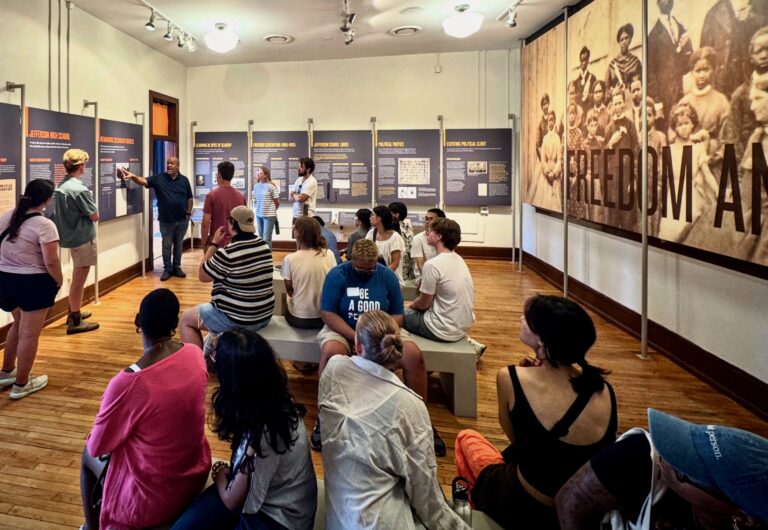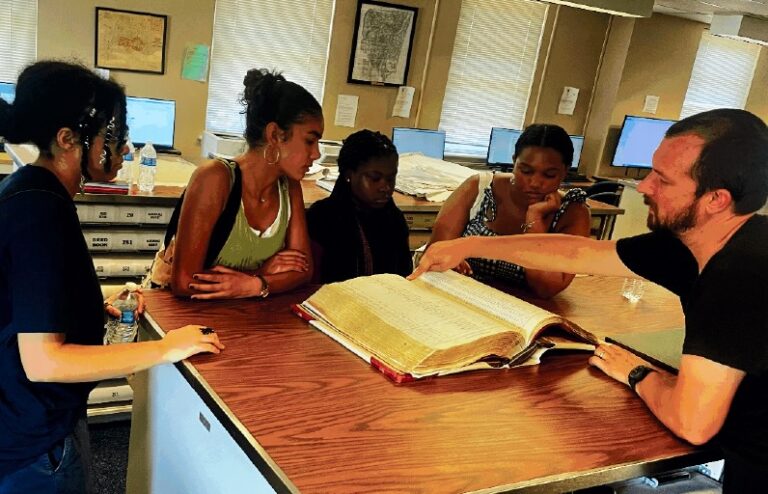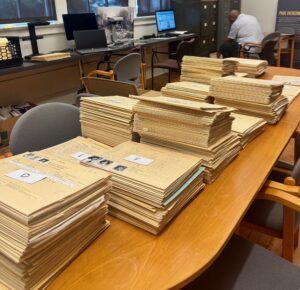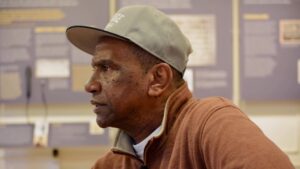
-
About Our History Center
Learn about the research going on at our Center for Local Knowledge.
-
Center Offerings
Learn about the Digital Humanities programs that the center is pursuing and how you can take part.
-
Research Projects
Learn about the current research conducted through our Digital Humanities program.


The Center for Local Knowledge
The Center for Local Knowledge (CLK) is dedicated to honoring and preserving Black history. Through community relationships, oral histories, and original research, we tell the full story of American history. As the Jefferson School African American Heritage Center’s research division, the CLK’s mission is founded in reparative and spatial justice, whereby we address past and present injustices by curating a more complete historical record. At the CLK we aim to empower communities to reclaim and celebrate their own histories, fostering civic engagement and deepening our collective understanding of the past. Our work bridges the gap between academic research and community storytelling, making history both more accessible and meaningful.
Offerings

Archival Records
The CLK is home to thousands of original records from both the Jefferson Graded School and Jefferson High School.
These City School records include comprehensive student files as well as annual teacher reports, and they span from 1909 – 1974.
Please contact us at: localhistory@jeffschoolheritagecenter.org if you are interested in finding out more information.

Oral Histories
The CLK has an archive of more than 100 oral histories with Black community members that date from 1980 to today.
Currently we have multiple ongoing oral history projects with different neighborhoods, and community groups.
Here is a trailer for a continuing oral history project begun in 2016 that centers the conversations on race, and how community members have experienced racism. WATCH TRAILER
Access: Search the Collection
01.
Mapping Cville
Mapping Cville is the first project in the area to comprehensively map inequities through Charlottesville and Albemarle County’s past and present. The project’s first map is logging and plotting all of the properties that contained racist covenants between 1888-1968, which prohibitied the sale of property to African Americans. Explore the project
02.
The Yearbook Project
The Jefferson High School for Colored students (1926-1951) published its Crimson and Black yearbook each year between 1940 and 1951. Within the pages of these books the many accomplishments of Jefferson’s students were chronicled. The books are not just documents of the school’s culture, but also articulate the aspirations of the larger Black community that supported their children and activities. Our Yearbook Project proposes to make these important, yet now fragile, documents available to a wider audience through a searchable database. The Jefferson School Yearbook project is made possible through a generous grant from the Charlottesville Area Community Foundation (CACF) and Ting, Inc.
03.
The 1966 Project
In 1964 the Charlottesville School Board began the process of closing the Jefferson School as the city’s all-black elementary school. By the fall of 1966 the school reopened as the city’s integrated 6th grade, effectively ushering in the true end of desegregation of the city’s schools. The 1966 Project presents the voices of those students and teachers who participated in this moment. If 1958 represented the alpha period for school integration in Charlottesville, 1966 would be the omega.
04.
Alumni Oral History
Patrons can access the more than 60 oral histories conducted with students who attended the Jefferson School from 1930-1960, as well as the ephemera collected while preparing our permanent exhibitions.
Hours
Heritage Center
Tuesday – Friday 1.00 pm – 6.00 pm
Saturday 10 am – 1 pm
Closed Monday & Sunday



